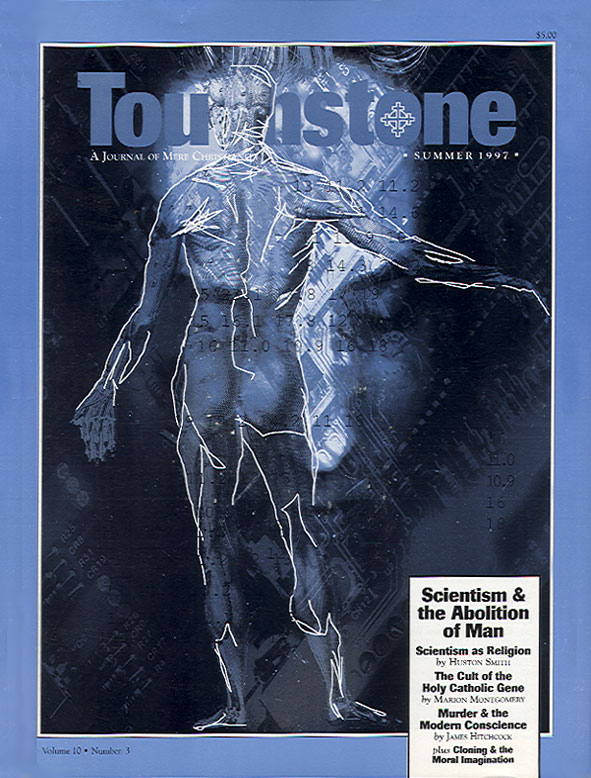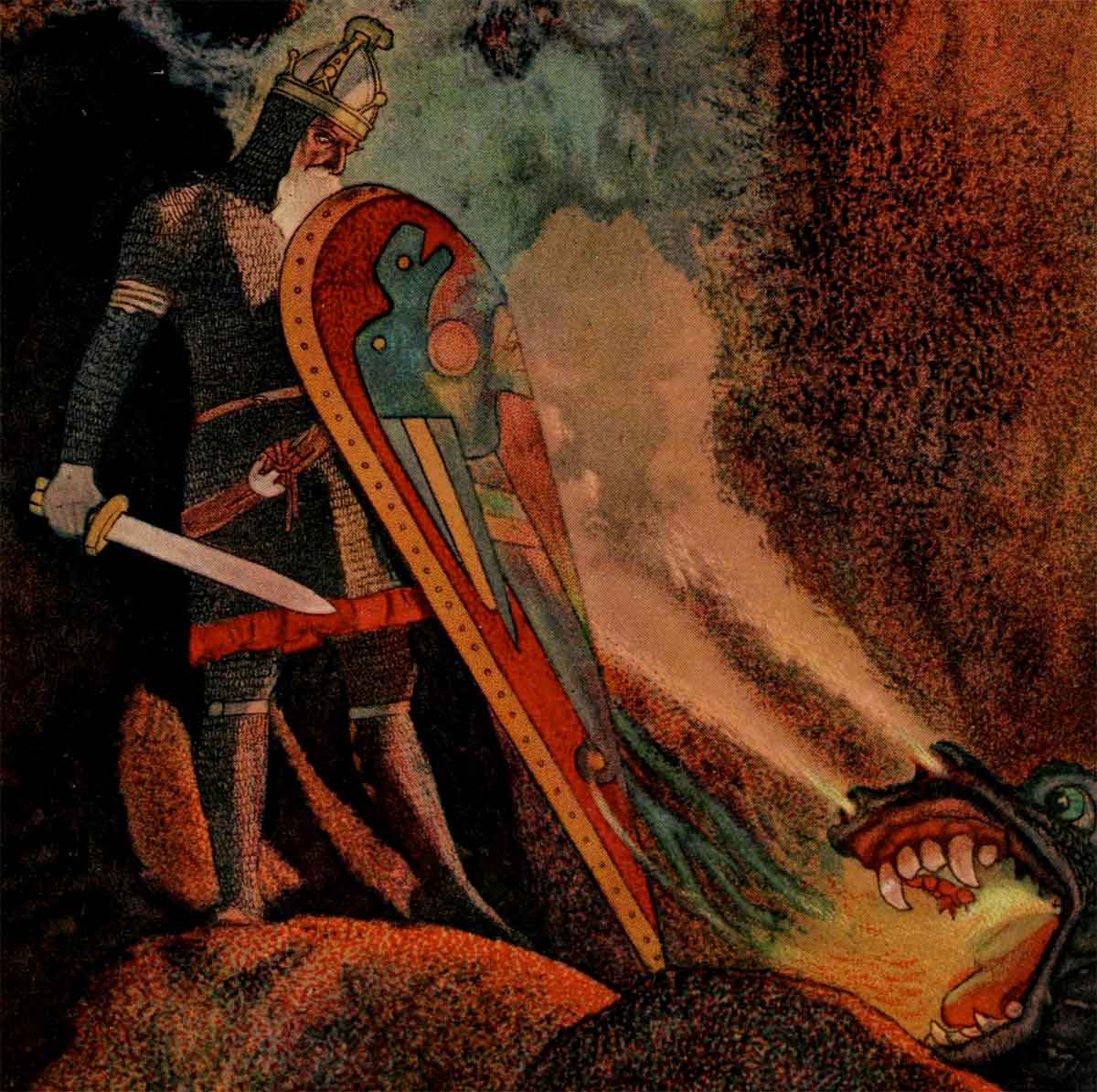Cloning & the Moral Imagination
by A. J. Conyers
Why did news of “Dolly”—the lamb successfully produced by cloning in Scotland last February—so quickly change into a discussion of human medical ethics? Unlike animal breeding—a practice that could conceivably be transferred to the human situation, but doesn’t normally evoke the concern that it will—the idea of cloning sends the imagination racing far beyond the competency of science and raises the specter of human reproduction using the same general principle. This happens despite the fact that, while selective breeding is a real possibility among human beings (though not an imminent probability), cloning is not yet even a technical possibility. In this case we have become concerned with possible realities even before reaching the point of real possibilities.
The question “Can it happen?” is a practical one, but it causes the imagination to pause only briefly, not to stop. For, in four hundred years of rapid technological advances, people have learned not to speculate that it can never happen. Too often the word “can’t” is covered in the dust of speeding new technologies. Thus is the imagination fueled to make the now improbable leap from a ewe lamb to a human being. The mind easily converts from real possibilities among farm animals to possible realities among human beings. So whether or not cloning presents an ethical problem as it now exists, it presents a temptation on the level of the human imagination. The hint of such a possibility changes the probability of how we understand and value life.
The ethical problems, at first remote and speculative, present themselves once we allow for three considerations:
First, without cloning, the emergence of life for all higher forms of animal life involves the contribution of two separate individuals. At the human level this implies relationship. Cloning allows us to imagine birth without relationship.
This is the obverse side, of course, of the age-old reluctance of the Church to sanction sexual relations without the possibility of procreation. The Roman Catholic Church has traditionally held out against artificial birth-control methods—methods that might encourage sex without discipline—because they seem to sever that necessary connection between the act of sex and the production of life. In recent years, several Protestant theologians and ethicists have raised similar questions. Stanley Hauerwas of Duke is one; and Albert Mohler of the Southern Baptist Theological Seminary is another.
Cloning, if it were possible for human beings, would break the connection in the other direction. Instead of sex without reproduction, it would be reproduction without sex (or even the idea of remote sexual cooperation, as in the case of artificial insemination). The idea of an individual who owes his biological existence to a single individual, and not to a sexually related pair of individuals, means that the genetic line is reduced from a web that spreads outward into the past—two parents, four grandparents, eight great-grandparents, and so on, embracing ancestors enough to populate whole cities—to a single strand (as the process might be imagined) that marches parallel to, but isolated from, all the rest of humanity.
In China a few years ago I gazed with wonder at the altar of a temple dedicated to a family’s ancestors. On the lowest shelf were pictures of the recently deceased. A step up were photos of men and women from an era before World War II. A rank higher stood plaques with names of those a generation earlier, the great grandparents of the still living elders in the family. Three ranks higher still bore the names of, it seemed, a host of ancestors, all presided over by images of mythical patriarchs.
Just as reproduction from two individuals implies community; the replication of one implies isolation. In our age it is sometimes difficult to urge much angst over this prospect; but in earlier ages and in other places, the prospect is clearly understood as catastrophic.
Second, in nature, birth signals the solidarity of life when divergent beings—here we are not simply referring to number, but diversity—give life to one that combines features of both. In birth, the two literally “become one flesh.”
Cloning allows one to imagine the needlessness of diverse life-forms. One genetically identical generation succeeds another. The process requires not diversity—two sexes, separate and distinct genetic make-up—but identity: one sex (as it stands now, female), and one genetic code. Distinction and cooperation (if that’s what we can call sexual love) are replaced by equality and uniformity.
A. J. Conyers (d. 2004) was Professor of Theology at Baylor University's George W. Truett Theological Seminary in Waco, Texas, and the author of several books, including The Long Truce: How Toleration Made the World Safe for Power and Profit (Spence, 2001).
subscription options
Order
Print/Online Subscription

Get six issues (one year) of Touchstone PLUS full online access including pdf downloads for only $39.95. That's only $3.34 per month!
Order
Online Only
Subscription

Get a one-year full-access subscription to the Touchstone online archives for only $19.95. That's only $1.66 per month!
bulk subscriptions
Order Touchstone subscriptions in bulk and save $10 per sub! Each subscription includes 6 issues of Touchstone plus full online access to touchstonemag.com—including archives, videos, and pdf downloads of recent issues for only $29.95 each! Great for churches or study groups.
Transactions will be processed on a secure server.
more on Imagination from the online archives
more from the online archives
calling all readers
Please Donate
"There are magazines worth reading but few worth saving . . . Touchstone is just such a magazine."
—Alice von Hildebrand
"Here we do not concede one square millimeter of territory to falsehood, folly, contemporary sentimentality, or fashion. We speak the truth, and let God be our judge. . . . Touchstone is the one committedly Christian conservative journal."
—Anthony Esolen, Touchstone senior editor













